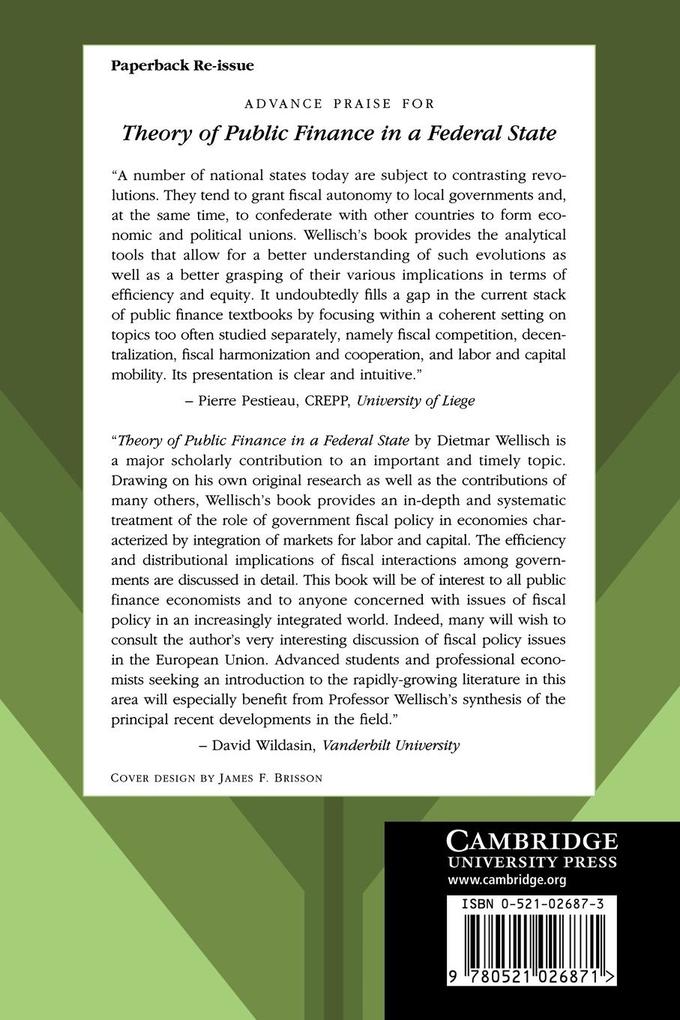
Zustellung: Sa, 12.07. - Mi, 16.07.
Versand in 5 Tagen
VersandkostenfreiBestellen & in Filiale abholen:
This book gives a new answer to the old question about the optimal degree of fiscal decentralization in a federal state. It shows that fiscal decentralization is a method to disclose the preferences of currently living and future generations for local public goods, to limit the size of the government, and to avoid excessive public debt finance. While the allocative branch of the government benefits from fiscal decentralization, it is difficult to obtain a distribution of incomes that differs from the outcome that the market brings along.
Inhaltsverzeichnis
Acknowledgments; 1. Fiscal decentralization: benefits and problems; 2. Locational efficiency and efficiency-supporting tax systems; 3. Perfect interregional competition; 4. Interregional tax competition for mobile capital; 5. Optimal structure of local governments; 6. Incentive equivalence through perfect household mobility; 7. Efficiency and the degree of household mobility; 8. Decentralized redistribution policy; 9. Decentralization and intergenerational problems; 10. Informational asymmetry between the regions and the center; 11. Conclusions; References; Index.
Produktdetails
Erscheinungsdatum
30. April 2006
Sprache
englisch
Seitenanzahl
228
Autor/Autorin
Dietmar Wellisch
Verlag/Hersteller
Produktart
kartoniert
Gewicht
377 g
Größe (L/B/H)
229/152/14 mm
ISBN
9780521026871
Entdecken Sie mehr
Pressestimmen
"I highly recommend this work both for the excellent synthesis of the existing works on fiscal decentralization and the important contributions to issues of public finance under conditions of factor mobility...it is a tremendous contribution to the field and a must read for scholars of federalism and decentralization." Publius
Bewertungen
0 Bewertungen
Es wurden noch keine Bewertungen abgegeben. Schreiben Sie die erste Bewertung zu "Theory of Public Finance in a Federal State" und helfen Sie damit anderen bei der Kaufentscheidung.










